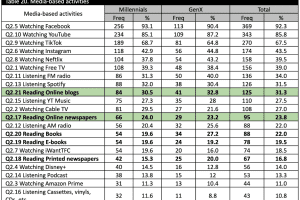Senator Imee Marcos has reiterated her call to upgrade the government’s disaster resiliency capabilities from mere disaster response, following the deaths of five government rescuers in San Miguel, Bulacan, during Typhoon Karding.
“The flashflood that drowned the rescuers points to the lack of an efficient flood watch and warning system as well as strict evacuation protocols that ensure residents are brought to higher ground much earlier,” Marcos said.
Marcos, whose maternal grandmother Remedios Trinidad is from Bulacan, pointed out that the site of the tragedy, Barangay Camias, lies close to the San Miguel River and between two irrigation canals but preemptive safety measures were clearly not in place.
“Rescuers can’t be expected to save lives while leaving their own to chance. Our tributes and prayers for the hapless victims and their grieving families would be meaningless without government action to level up on disaster resiliency,” she added.
Marcos filed Senate Resolution 421 on Tuesday, recognizing the bravery and heroism of George Agustin, Troy Justin Agustin, Marvy Bartolome, Narciso Calayag, and Jerson Resurreccion of the Provincial Risk Reduction and Management Office of Bulacan.
Marcos has sought a “more feasible solution” to calamity preparedness and response through the creation of a National Resiliency and Disaster Management Authority (NRDMA), an upgrade from the present National Disaster Risk Reduction and Management Council but which would be less costly than a full-fledged government department.
Shortly after the start of the 19th Congress, Marcos filed Senate Bill 186 which revives her original proposal made in 2019 via Senate Bill 1125.
The senator noted that the mobilization of resources during times of disaster was hampered by the current practice of “having to go through different government agencies, various chains of command in the PNP and branches of the AFP, often even requiring the President to personally mobilize frontline departments.”
“Year-round resiliency also demands updated rescuer safety training and equipment and a more efficient weather information support and warning system for local governments,” Marcos said.












